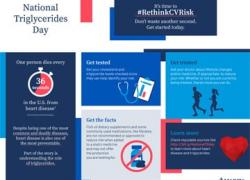How retirees can support their oral health and overall well-being
(Jill Purcell, Head of Dental and Vision Product and Network Management, Guardian and Shawn Patrick, Director of Strategic Growth, Kelsey National) - Maintaining good oral health is a crucial component of your overall well-being at any age, yet it becomes particularly important as we get older. Oral health is closely tied to not just our physical wellness but also our mental and financial well-being.
- Maintaining good oral health is a crucial component of your overall well-being at any age, yet it becomes particularly important as we get older. Oral health is closely tied to not just our physical wellness but also our mental and financial well-being.
Unfortunately, far too many older Americans aren’t getting the dental care they need. In fact, one in four U.S. adults aged 65 and older have not had dental care in more than two years. With some Medicare plans scaling back dental benefits, now is the time to act.
The well-being connection
Oral health can have a lasting impact on your broader physical wellness. Without proper care, harmful bacteria can build up around teeth and cause gum disease or even spread to other parts of the body. Dry mouth, which can be caused by some medications as well as by CPAP use, can increase the risk of cavities and gum disease as well. Health conditions linked to poor oral health also include diabetes, kidney disease, dementia, pneumonia, and liver disease, among others.
This connection is particularly important for seniors to take into consideration. According to Guardian’s 2025 Mind, Body, and Wallet® report, 97% of Baby Boomers say that physical health plays an essential role in their well-being. Yet the impacts of oral health extend even further.
Guardian research has also found that poor oral health correlates with low self-esteem, anxiety, and depression. There’s a tie to financial wellness too, with the same study showing that adults over age 55 who do not receive annual dental exams and cleanings have higher claim costs compared to those who do.
Despite its importance, many older Americans aren’t getting the care they need to support good oral health. According to the National Association of Dental Plans, approximately 31 million Americans ages 55 and older remain without dental coverage.
The benefits of an individual dental plan
To help meet the needs of retirees and others who don’t have access to dental insurance through an employer, some carriers offer dental plans directly to consumers.
This is an option that provides a lot of benefits for seniors. For instance:
- You can assess a wide variety of plans at all different price points, including on third-party websites that make it easy to compare options.
- By selecting a carrier with a large provider network, you can find care where it is convenient for you. You may also be able to save on care costs with discounts that network dentists may provide in partnership with a carrier.
- With carriers that offer a self-service online platform, you can access information such as benefits details, claims history, network dentists near you, and ID cards, plus live support.
- Some carriers are even providing ongoing education about oral health and dental benefits, along with well-being support.
Now all that’s left is selecting the right plan.
What to look for in an individual dental plan
No two individuals are going to have the same exact oral care needs, regardless of age. Still, by keeping a few factors in mind, you can select the dental plan that will be the best fit for you.
For starters, finding a plan that covers preventive, basic, and major dental care is key. Also consider any other services beyond regular cleanings and x-rays you may want to use to be sure your plan covers them. Plus, if you have an immediate dental need, be on the lookout for waiting periods, which require that you be enrolled in the plan for a minimum number of months before a more expensive procedure may be covered.
Getting started
Maintaining good oral health as a senior has benefits that extend far beyond the teeth and mouth.
By finding the dental plan that’s right for you, you’re on your way to enhancing your oral health and overall well-being. Get started today.











